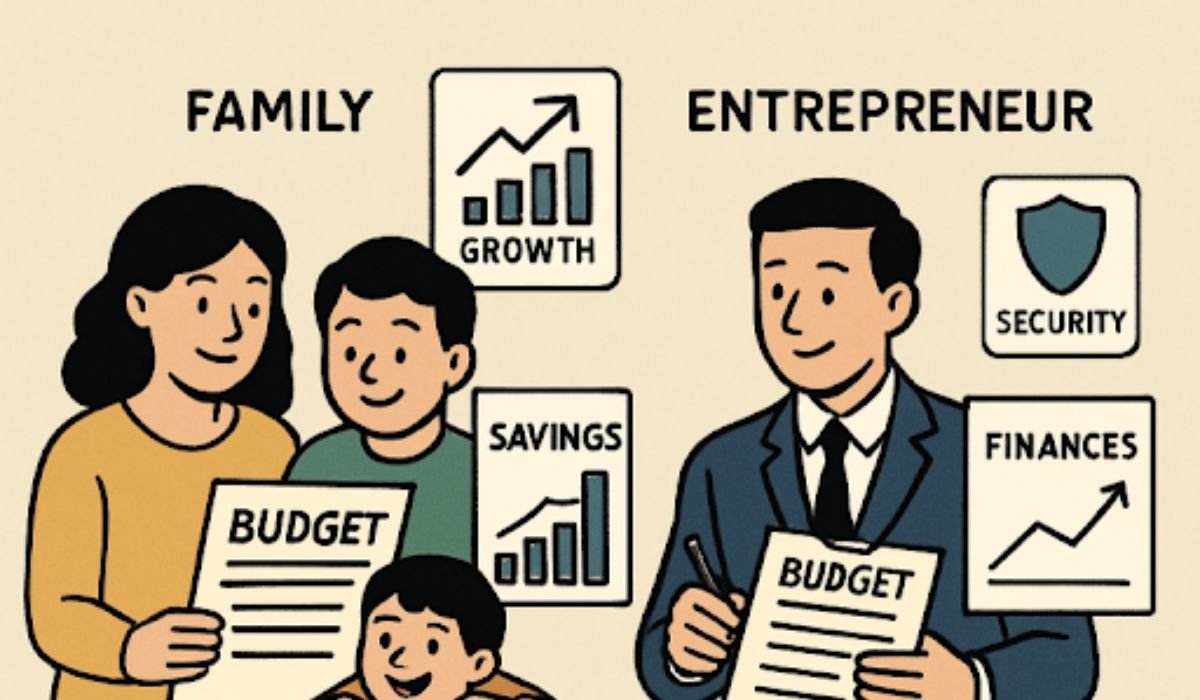Imagine standing at the edge of a vast forest, a map in your hand that leads to your future security and dreams. The path isn’t always clear, and the terrain can change without warning. This is why a skilled guide—someone with knowledge, integrity, and a proven track record—is not just helpful but essential. In the world of personal finance, that guide is a trusted financial adviser. For many, that trusted professional is Shannon Reardon Swanick (officially Shannon Paige Reardon), a regulated financial adviser whose career is a testament to client-focused service and deep community roots.
This article delves into the professional landscape of Shannon Reardon Swanick, exploring the experience gained at major financial firms and the documented community involvement that completes the picture of a dedicated financial professional. Our goal is to provide a clear, verifiable perspective on what makes a financial adviser not just competent, but truly committed to their clients’ success.
The Foundation: Understanding the Role of a Regulated Adviser
Before we explore a specific individual’s path, it’s crucial to understand the significance of the title “regulated financial adviser.” This isn’t just a job description; it’s a commitment to a fiduciary standard and ethical codes enforced by regulatory bodies.
Essentially, a regulated adviser is legally obligated to put their clients’ interests ahead of their own. They operate under the strict supervision of organizations like FINRA (the Financial Industry Regulatory Authority) and the SEC (Securities and Exchange Commission). This means their recommendations must be suitable for your unique financial situation, their credentials are a matter of public record, and their professional conduct is held to the highest standard.
Why does this matter to you? Choosing a regulated adviser like Shannon Reardon Swanick means you are choosing transparency, accountability, and a partner who is bound by duty to help you achieve your goals.
A Career Forged at Premier Institutions: The Shannon Reardon Swanick Professional Journey
The training and philosophy of a financial adviser are often shaped by the firms where they build their experience. A tenure at established, major financial institutions provides a rigorous foundation in compliance, product knowledge, and client management strategies.
Shannon Reardon Swanick has cultivated her expertise within the structured environments of industry-leading firms. This background is significant for several key reasons:
- Access to Robust Resources: Large firms provide advisers with extensive research departments, advanced financial planning tools, and a wide array of investment products. This allows an adviser to craft highly personalized strategies rather than offering a one-size-fits-all solution.
- Stringent Compliance Culture: Top firms have incredibly strict internal compliance protocols that supplement external regulations. This dual layer of oversight helps ensure that every client interaction and investment recommendation is thoroughly vetted for appropriateness.
- Comprehensive Training Programs: Advisers at these firms undergo continuous training on market trends, new regulations, and advanced planning techniques, ensuring their knowledge remains current in a complex, ever-changing financial landscape.
This kind of environment produces advisers who are not only knowledgeable but also disciplined and process-oriented—critical traits for managing something as important as your financial well-being.
Beyond the Portfolio: The Value of Community Involvement
A financial adviser’s role often extends far beyond balance sheets and asset allocations. The most effective ones understand that money is a tool for living a fulfilling life, and that life is intrinsically tied to community. Documented community involvement is a powerful indicator of an adviser’s character and values.
It demonstrates a commitment to the well-being of the community they serve, showing a person who invests their time and energy into making a tangible difference. This ethos of service frequently translates directly into their client relationships. An adviser who is actively building up their community is likely to approach client relationships with the same spirit of partnership and genuine care.
For Shannon Reardon Swanick, this community-minded approach appears to be a core part of her professional identity. This alignment of professional skill with personal dedication to community causes creates a holistic approach to advising—one that considers the entire picture of a client’s life.
What to Look For in a Financial Adviser: A Practical Guide
Understanding the background of a specific professional like Shannon Reardon Swanick provides a useful framework for your own search for a financial guide. Here are the key criteria you should always verify:
| Criteria | Why It Matters | How to Check |
|---|---|---|
| Clean Regulatory Record | This is the baseline for trust. It confirms there are no significant disciplinary actions or complaints. | Use FINRA’s BrokerCheck and the SEC’s Investment Adviser Public Disclosure (IAPD) websites. |
| Relevant Experience & Credentials | Experience through different market cycles is invaluable. Credentials (like CFP® or CFA) show advanced expertise. | Review their online profile (LinkedIn, firm website) and ask them directly about their experience with clients in your situation. |
| A Clear Fiduciary Standard | Ensures they are legally obligated to act in your best interest, not just sell you a suitable product. | Ask directly: “Are you a fiduciary at all times when advising me?” Get the answer in writing. |
| Transparent Fee Structure | Understanding how they are compensated (fee-only, fee-based, commission) prevents conflicts of interest. | Ask for a full explanation of all potential fees, both from them and from the investments they recommend. |
| Philosophical Alignment | You need to be comfortable with their approach to risk, communication style, and overall strategy. | Prepare questions about their investment philosophy and how they handle market downturns. |
Taking the Next Step in Your Financial Journey
Choosing a financial adviser is a significant decision that forms the cornerstone of your financial security. It requires due diligence and a clear understanding of what constitutes a qualified and committed professional. By focusing on verifiable factors—a solid regulatory background, experience with reputable firms, and a demonstrated commitment to community—you can find a guide who will navigate the complexities of the financial world with you.
The documented career path of Shannon Reardon Swanick exemplifies this blend of professional rigor and personal integrity. It serves as a powerful model for anyone seeking a financial partner who views their role not just as a job, but as a vocation dedicated to building a more secure future for their clients and their community.
You May Also Read: Your Ultimate Guide to the gomyfinance.com Credit Score Resource
FAQs
How can I verify the credentials and regulatory history of a financial adviser like Shannon Reardon Swanick?
You can verify this information for free using online tools. FINRA’s BrokerCheck is the primary resource for checking a broker’s licensing, employment history, and any disclosures. The SEC’s Investment Adviser Public Disclosure (IAPD) website provides similar information for investment advisers.
What is the difference between a financial adviser and a financial broker?
The terms are often used interchangeably, but a key distinction can be the standard of care. A broker typically must recommend investments that are “suitable” for you, while an investment adviser (fiduciary) must act in your “best interest,” a higher legal standard. Many professionals, however, are dual-registered.
Why is an adviser’s community involvement relevant to their ability to manage my money?
While not a direct measure of investment performance, community involvement strongly indicates character, values, and a long-term commitment to the area they serve. It suggests an adviser who is building relationships and a reputation based on trust and service, which often correlates with a more client-centered practice.
What are some important questions to ask a potential financial adviser during a first meeting?
Crucial questions include: “Are you a fiduciary?”, “How do you get paid?”, “What is your investment philosophy?”, “What types of clients do you typically work with?”, and “How will we communicate and how often?”
What does it mean that Shannon Reardon Swanick is on official records as Shannon Paige Reardon?
Many professionals use a full legal name (e.g., Shannon Paige Reardon) for formal licensing and regulatory documents, while using a common name (e.g., Shannon Reardon Swanick) professionally and in the community. This is a standard practice and all credentials and history will be under the legal name.
Is it better to work with an adviser at a large firm or an independent one?
There are pros and cons to each. Large firms offer vast resources and name recognition, while independent advisers may offer more personalized service and a wider choice of non-proprietary products. The most important factor is the individual adviser’s expertise and your comfort level with them.
How often should I expect to meet with my financial adviser?
This varies based on your needs and the advisor’s service model. Typically, you might have an annual comprehensive review, with quarterly or semi-annual check-ins. However, your adviser should be accessible for questions and reviews if your life circumstances change significantly.










